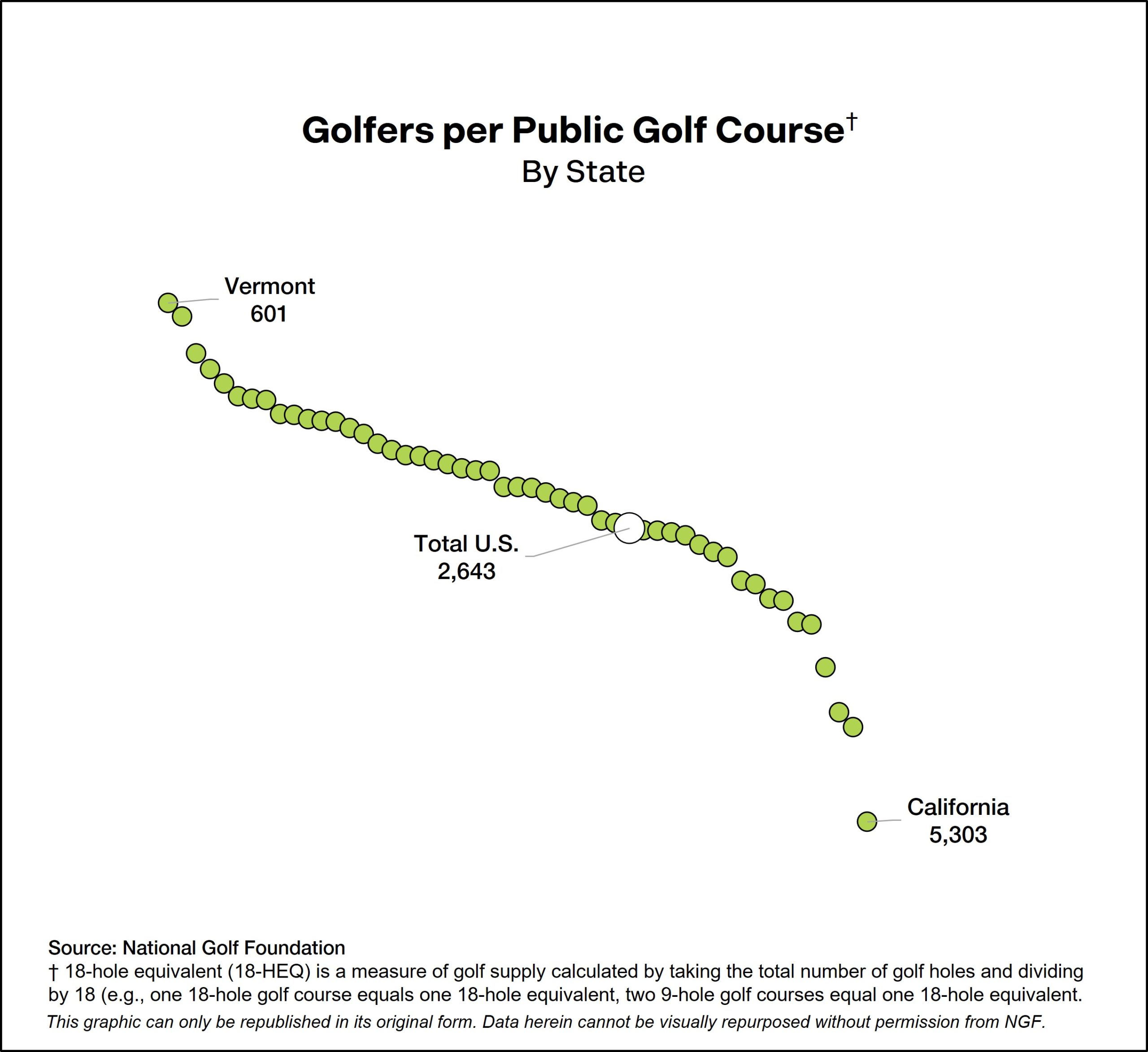In recent years, there have been a few high-profile fights for the preservation of municipal golf courses.
Linksoul founder John Ashworth successfully spearheaded a ballyhooed community effort to “Save Goat Hill” in San Diego. Ben Crenshaw is similarly trying to save Lions Municipal, the historic course in Austin, Texas, known as ‘Muny’ that the two-time Masters champion grew up playing.
Examples like these have led some to believe that Muni golf is facing an existential threat. It isn’t. Well, at least in 49 out of 50 states it isn’t.
In truth, since the beginning of the correction in golf supply that began in 2006, the number of municipal golf facilities has actually increased, not decreased. Only slightly mind you (about +5%) but a gain nonetheless in a market where the balance of facilities — comprised of daily fee courses and private clubs — has declined by 15%. The increase in munis has come mainly through the acquisition of daily fee courses, rather than new construction.
This might change if the California state assembly passes Assembly Bill 1910, which encourages municipalities across the state to convert their golf courses into affordable housing developments. Proposers of the bill argue that golf is on the decline and is exclusive (baloney), and that affordable housing would be a better use of the land.
The Southern California Golf Association (SCGA), with the support of many other allied golf associations, is to be commended for leading the fight to stop AB-1910 and its predecessor AB-672 (AKA The Public Golf Endangerment Act) from becoming law. For more information [CLICK HERE].
Why is this important to all of us, not just to our colleagues in the Golden State? To begin with, despite the large number of courses in California, the state is woefully undersupplied when taking into consideration the state’s huge population, ranking at the bottom in per capita public golf supply. (See graphic) The state would need 533 more public golf courses for it to pull even with the national golfers-per-public-golf-course average. Think about that. They would need to add a public golf course a day (wink) for the next year and a half just to reach the U.S. ‘average’ level of public golf supply!

Seriously, any reduction in public golf supply in California, be it of the daily fee or municipal variety, will only exacerbate the undersupply situation there, making it even harder for existing golfers to find tee times, while at the same time increasing the barrier to entry for new golfers. This isn’t how we are going to grow golf participation and rounds played. Further, this sets a very dangerous precedent, arming golf oppositionists elsewhere with a legislative example we really don’t want them to have.
NGF has registered its opposition to the bill. You can read our response here. If you’d like to express your own thoughts to the California Assembly, and I strongly encourage you to do so, the SCGA can help.
Until next time.



